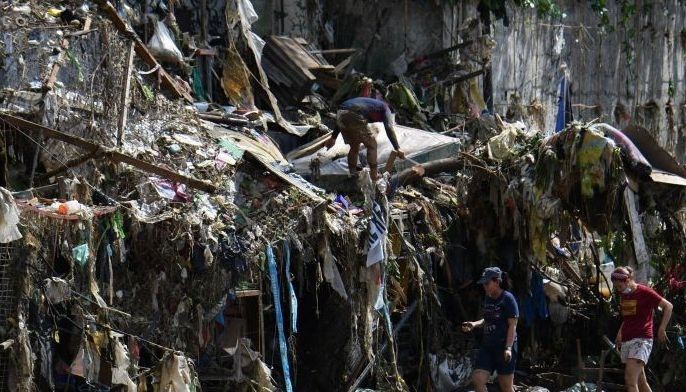MANILA, Philippines — Human-induced climate change is intensifying cyclones that threaten many countries in the world, including the Philippines, and will make storms worse in the coming decades, a climate scientist said Wednesday.
In a sobering report released Monday, the Intergovernmental Panel on Climate Change confirmed that “widespread and rapid” changes in the atmosphere, ocean and land have occurred and that it is “unequivocal” that human activities have warmed the planet.
Related Stories
The IPCC—a panel of climate scientists convened by the United Nations—warned that some of the consequences of the climate crisis, especially changes in the ocean and ice sheets, are irreversible for centuries to millennia.
And what do the findings of the report mean for the Philippines—an archipelago in the Pacific that is highly vulnerable to the impacts of climate change?
“It means the impacts we’re already seeing now—for example, impacts of tropical cyclone occurrences all over the country—they’re going to get worse. The projection is that while the number of tropical cyclones may not increase, its intensity will definitely increase,” climatologist Lourdes Tibig said in an interview with ABS-CBN News Channel.
“We’re going to see more adverse impacts, we’re going to experience more extreme temperatures, we’re going to experience more heavy rainfall and flooding events. What does it mean for our economy? It is a lot,” she added.
IPCC warned that the average global temperature will likely breach the 1.5-degree Celsius warming threshold within the next 20 years, bringing more extreme weather events. Human activities have already heated the Earth by 1.1°C.
Continued sea level rise driven by climate change will affect coastal communities in the country, Tibig also said, warning that some islands may be submerged underwater if the rise in sea levels is not decelerated.
“Sea level rise in the Philippine seas is faster than what the IPCC report says,” she said.
At least three meters of sea level rise can be avoided if humans limit warming to 1.5°C instead of 2°C, according to the report.
Swift action needed
Tibig, who also serves as Institute for Climate and Sustainable Cities’ climate advisor and a member of the Climate Change Commission’s National Panel of Technical Experts, said people will see more adverse impacts on the country’s environment, agriculture, food security and the health sector “if we do not heed the new report.”
She emphasized that the report sends the message that governments must take critical action to cap warming to 1.5°C—the goal set by the 2015 Paris Agreement.
“It simply means that we need to act fast now and we need to have massive action in order to reduce our emissions,” Tibig said.
“We need to step up our actions, we need to be consciously aware of what’s going to happen if you don’t try to do something.”


